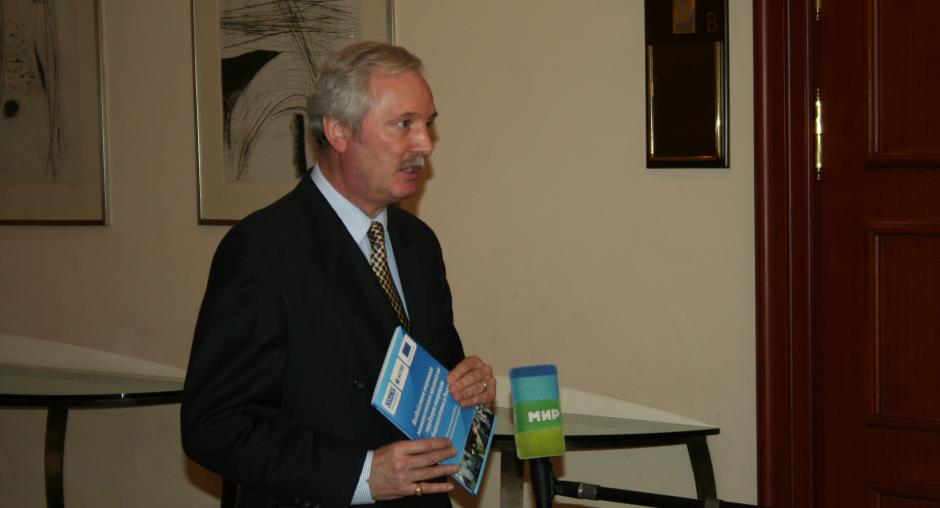Kyrgyz migrants sending less money home, finds study supported by OSCE Centre in Bishkek

BISHKEK, 26 November 2009 - Kyrgyz citizens working in Russia are sending less money home but a mass return of migrants has not occurred, found an OSCE Centre-supported survey on the implications of the global financial crisis for Kyrgyz labour migrants that was presented at a conference in Bishkek today.
"It is important to stress, particularly in today's financial and economic situation, that migration is a positive force which can help the Kyrgyz government to overcome economic downturns. Therefore, policy-makers should carefully consider different options to deal with migration and migrant labour for long-term socio-economic development in Kyrgyzstan. The OSCE hopes the survey we present today will make a timely contribution to policy and human needs," said Ambassador Andrew Tesoriere, the Head of the OSCE Centre in Bishkek.
The OSCE Centre in Bishkek supported the survey, which focused on Kyrgyz labour migrants in Russia, with an emphasis on the migrant return and remittance dynamic. It was conducted by CASE-Kyrgyzstan, an independent research think-tank, across the country and in Russia. The local office of ACTED, a French non-governmental organization, carried out the survey in the southern provinces of Kyrgyzstan.
The survey found that remittances had fallen by half during the April-September 2009 period compared with the same period in 2008. Although Kyrgyz labour migrants were sending home less money, less often, they were not returning home in large numbers, as some experts had predicted.
The results were presented at a conference, entitled "The behaviour of Kyrgyz labour migrants in the context of the global financial crisis", which gathered more than 70 national policy-makers, local and international experts and civil society representatives. The participants discussed the use of remittances and more effective reintegration of returning migrants, and developed recommendations to improve labour migration management in Kyrgyzstan, including the establishment of a working group comprising national and international experts.
Toktosun Sabyrov, Kyrgyz Deputy Minister for Labour, Employment and Migration, added: "The Kyrgyz government is grateful to the international community for initiatives taken in order to improve labour migration management in Kyrgyzstan. The survey supported by the OSCE provides us with the latest trends and data in migration processes, and therefore it is a valuable instrument for us in adapting our policy in the context of the economic recession."
The survey and conference were carried out as part of the Labour Migration and Employment programme supported by the OSCE Centre in Bishkek.
The survey report is available in Kyrgyz, Russian and English.
